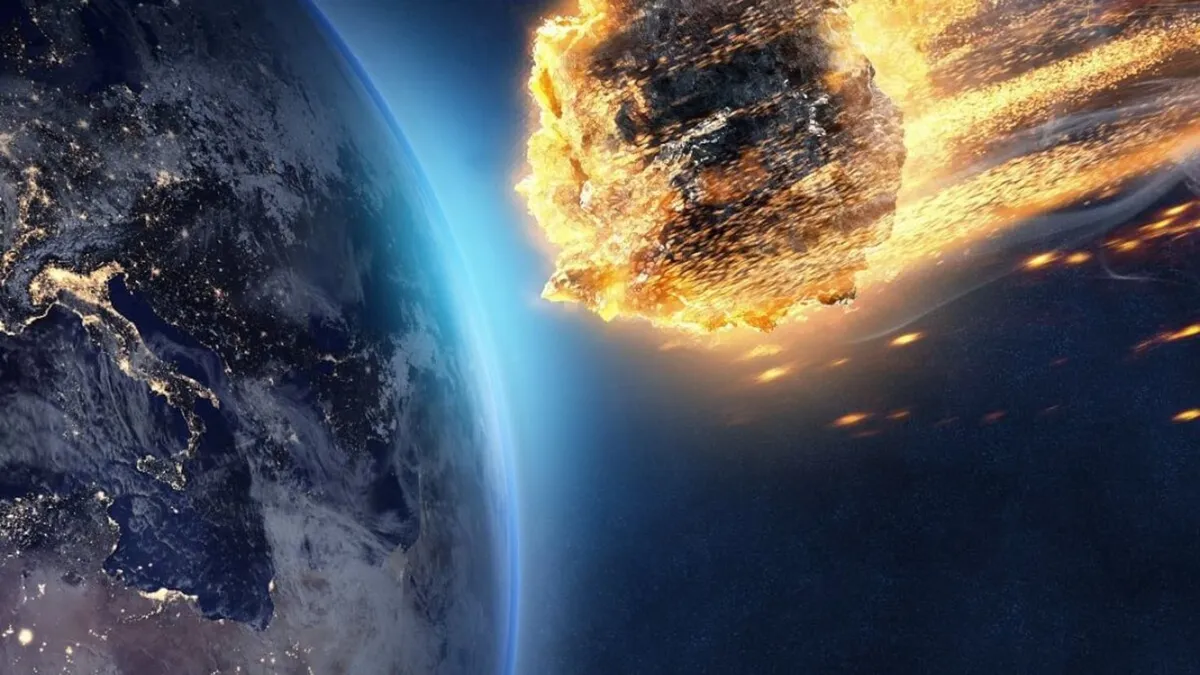
A massive asteroid that recently captured the attention of the scientific community is now on a potential collision course with the Moon. Asteroid 2024 YR4, measuring approximately 197 feet (60 meters) in length, was initially flagged as a potential threat to Earth. However, recent data from leading space agencies indicate that the asteroid no longer poses a risk to our planet, but there is now a 2% chance it could strike the Moon.
The updated findings, made possible by observations from the James Webb Space Telescope (JWST) on March 26, provide a more accurate analysis of the asteroid’s trajectory. Julia de León, a planetary scientist at the Institute of Astrophysics of the Canary Islands, expressed her enthusiasm regarding the potential lunar impact. “If it hits the Moon, it wouldn’t pose any danger to us—nothing would really happen. But it would be an incredible opportunity to observe a lunar impact and its immediate consequences,” de León shared with El País.
She further emphasized the significance of this event by stating, “We know the Moon is covered in craters, and we know small objects hit its surface all the time, but we’ve never seen a collision of an object larger than 164 feet (50 meters). It would be amazing.” This highlights the unique opportunity for scientists to study the effects of a large impact on the Moon's surface.
The asteroid first garnered attention in early February when both NASA and the European Space Agency (ESA) reported that it could potentially collide with Earth. This alarming scenario led to the United Nations activating the Planetary Security Protocol for the first time in history. Initially estimated to be between 40 and 90 meters, the asteroid was classified at Level 3 on the Torino Scale, indicating a 1% chance of impact.
As calculations evolved, NASA increased the impact probability to 3.1%, but subsequent refinements from various observatories dramatically reduced the risk to nearly zero, alleviating concerns regarding a direct impact on Earth. However, the Moon is still at risk as new observations from JWST suggest that the asteroid’s actual size is around 60 meters, exceeding the 50-meter threshold that triggers alerts from the United Nations Space Mission Planning Advisory Group.
“This is the size threshold where an asteroid could cause significant damage,” de León noted, stressing that an impact could result in destruction within a radius of 50 to 62 miles (80 to 100 kilometers). Although a lunar impact would be harmless to Earth, experts are closely monitoring 2024 YR4 due to the historical devastation caused by asteroids of similar size. A notable example is the Chelyabinsk event of 2013, where a 66-foot (20-meter) asteroid exploded in Earth’s atmosphere, causing extensive damage and injuring approximately 1,500 people.
While the possibility of an Earth impact is currently off the table, scientists eagerly anticipate studying the consequences if asteroid 2024 YR4 collides with the Moon. “Honestly, I hope it does,” de León admitted. “We could track the impact using space and ground-based telescopes. It would be a truly fantastic learning opportunity.”
Researchers plan to continue monitoring the asteroid, with another round of James Webb observations scheduled for May to further refine estimates of its lunar impact probability. As the situation evolves, the scientific community remains hopeful for new insights into planetary defense and the behavior of asteroids.
For more information about asteroids and planetary defense, stay tuned for updates and related stories. Whether you're interested in the latest scientific discoveries or the ongoing efforts to protect Earth from potential impacts, we’ve got you covered.